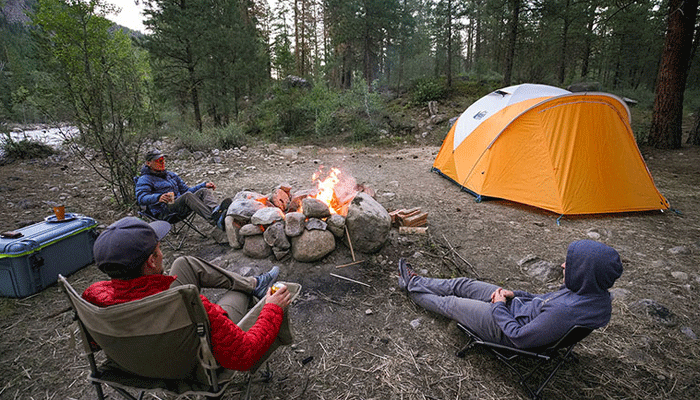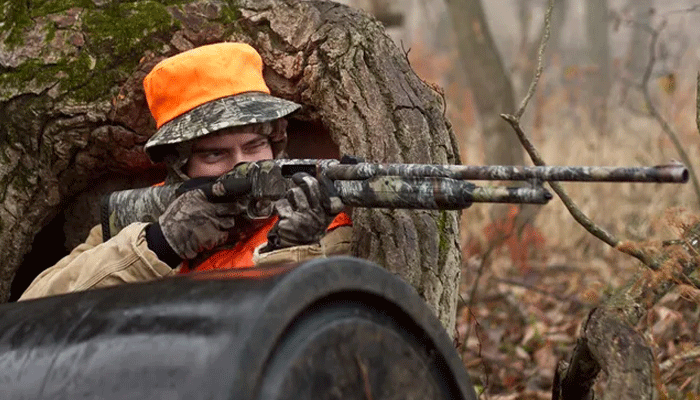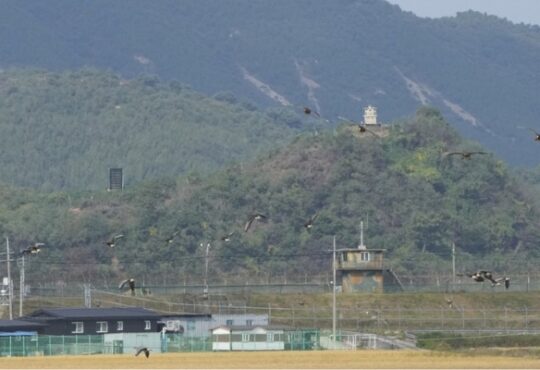
Whether preparing for a nuclear disaster, chemical warfare, or natural catastrophes (like wildfires), having the proper personal protective equipment in your bug-out bag is vital. That’s where gas masks (technically respirators) come in handy.
Without getting too science-y, gas masks protect against threats that fall into two categories: particles and gases. Particles are dust, smoke, and ash from collapsed buildings or tear gas, while gases are poisonous chemicals or biological agents.
Protects Your Lungs
When you wear a gas mask, it forms a seal over your nose and mouth to prevent airborne pollutants or toxic gases from entering your lungs. In addition, they protect you from exposure to them through digestion or contact with your eyes (many agents affect people through the eye).
There are many gas masks – also called respirators – and they come in various forms and ratings. You can get cheap disposable N95 or P100 models with tight seals around your face or full-face versions designed to protect you from spray paint and other dangerous chemicals. Some models even have a hood to offer additional protection to your eyes. Based on the CDC’s National Institute for Occupational Safety and Health (NIOSH) ratings, its rating is the most essential factor in deciding which type to buy.
The rating indicates how fine-grained the filter is – for example, an N95 mask filters out 95% of particles measuring 1 micron or smaller. That’s the size of an average human hair, so it’s pretty tiny! Most modern masks also have a charcoal-based filter to remove some gases.
While a gas mask can offer some protection from radiation, the most important thing is to keep as much of your body covered as possible with other protective gear. Radiation comes in three forms – alpha, beta, and gamma – and the alpha and gamma are most dangerous to your health.
Aside from a nuclear attack, a chemical spill or other disaster may release harmful toxins into the air. Whether terrorists attack a city with poison gases or a natural disaster sends chemical-laden debris flying, a hazmat team may not arrive in time to mitigate the damage.
That’s why preparing by having a mask in an emergency is essential. You should include at least a pair of cheap, disposable N95/P100 models in your emergency kit and a full-face CBRN or NBC-rated model in your home. Ensure you store them in a cool, dry place and keep the filters in air-tight packages until needed. If you have a MIRA Safety CA Coupon Code, you can use it to get discounts on these essential safety items.
Helps You Breathe
When you wear a gas mask, it creates a sealed cover over your nose and mouth. It also covers other sensitive parts of your face that could be damaged by smoke or crowd control chemicals like pepper spray. It can help protect you from airborne contaminants and chemical attacks, but only if you put it on at the exact moment of the attack.
Even if you don’t live near a chemical plant or are not exposed to dangerous gases in your job, a disaster could bring them into your environment. A natural disaster or terrorist attack can release harmful toxins into the air, or you may be in an area that has been damaged by fire and is filled with toxic smoke. A gas mask can prevent breathing in these toxins and allow survival.
There are a lot of different types of gas masks out there. Some are designed to be worn by people with medical conditions, while others are more advanced military-grade units. Some are even small enough to fit on a baby’s head! Some accessories, like lenses and filters, can be added to masks, which affect their effectiveness. Some lenses are straightforward, while others have a large field of view and can filter out smoke.
The filtration capabilities of a gas mask can be affected by the materials it is made of and how well it is maintained. Keeping a gas mask properly stocked with replacement filters and canisters is essential. The canisters containing charcoal or other chemicals to filter the air should be stored in their original, air-tight packaging and inspected regularly for damage, deterioration, and expiration dates.
Some gas masks are more effective than others; you must stock up on the right ones to prepare for emergencies. Whether you want to protect yourself from CBRN attacks, COVID-19, or both, a gas mask is an essential piece of survival equipment. With a proper supply of masks and accessories, you’ll be ready for whatever comes your way. If you have an Accessories Discount Code, you can use it to get discounts on these essential gas mask accessories to enhance your preparedness.
Helps You Survive
A gas mask provides you with the ability to stay alive longer in an emergency situation. It can protect your lungs from harmful particulates and gases that would otherwise damage them and help you escape dangerous situations. For example, you can use it in a fire to filter out harmful smoke or if trapped in a building in an earthquake. In some situations, such as a chemical attack or nuclear fallout, breathing is essential to survival.
Most people are familiar with respirators (gas masks), such as the disposable N95 or P100 ones used by firefighters and construction workers that form a tight seal around the nose and mouth. They’re also used in many other situations, such as when a doctor sneezes, or the air gets smoky during surgery. Some people also use a cheap, single-use version called an escape hood to quickly escape from a burning building in a disaster scenario.
There are also other gas masks, including those designed for military and law enforcement personnel. These are usually more expensive and require more training, but they provide the highest protection against chemical, biological, and radiological threats. They are the best option for those who want to be prepared for emergencies.
An excellent general-purpose mask for chemical emergencies is the 3M 8576 P95 Acid Gas, which costs about $40 a box of 10. It will filter out “nuisance levels” of sulfur dioxide, hydrogen fluoride, chlorine, bleach, and other organic vapors, and it has a rating against some respiratory hazards. Other filters can be purchased to protect against other chemicals or biological hazards, so having one or more on hand is a good idea.
The most important thing to remember about a gas mask is that it’s only effective when you have the correct cartridge or filter. So, be careful when searching for one online—it’s easy to find misleading info and bogus listings on Amazon or eBay that don’t have CBRN/NBC-rated equipment.
Helps You Avoid Exposure
A gas mask can prevent inhaling a dangerous substance while working or walking around during an emergency. This is because a gas mask filter can adsorb or chemically react with certain chemicals, preventing you from inhaling them.
If you’re a prepper, having some respirator in your gear is necessary. But it’s essential to have the right kind, not a cheap disposable or a CBRN/NBC type that would be useless in an emergency. Plenty of exploitive scammers and wrong social media info lead people to impulsively buy the wrong stuff, especially on eBay or Amazon. Be wary of anything that’s familiar in the original factory-sealed bag and has no official spec sheets from the manufacturer.
The most common types of respiratory masks are the cheap, disposable N95 or P100 ones you see everyone wearing at airports. These are useful for preventing the spread of infectious diseases and are good to have on hand for a flu pandemic. The more advanced ones, like the CBRN or NBC types usually seen in movies and on TV shows, are useful for protecting you from nuclear fallout, biological elements, and chemicals. You want to keep these in your kit for sudden emergencies (like a nuclear bomb near you).
There are also specialized models, like the respirator used by railroad engineers, that are good for keeping track of a volatile sulfurous or toxic gas while you work. These specialty models are less widely available, but it’s still worth getting one if you can find it.
The most crucial difference between an ordinary respiratory mask and a CBRN or NBC model is whether it can protect against particles or gases. A particle-rated gas mask filters out dust, ash, and combustible debris from fires, viruses, bacteria, and even tear gas. The specialized CBRN or NBC-rated respirators can also filter out radiation from nuclear explosions, chemical fumes, and other deadly toxins.
Conclusion
Gas masks are an essential tool for emergency preparedness. They can protect individuals from harmful gases and chemicals in a disaster or attack. It is essential to have a properly functioning gas mask and to know how to use it to ensure the safety and well-being of yourself and others.








